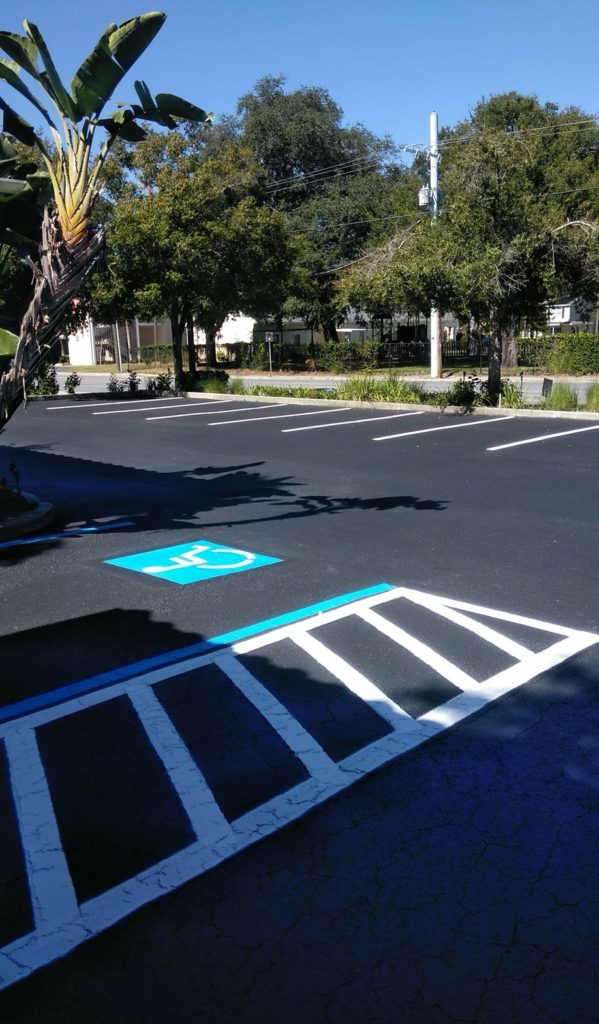Safeguard Surface Areas with Professional Asphalt Sealing: Cold Mix Essentials
Safeguard Surface Areas with Professional Asphalt Sealing: Cold Mix Essentials
Blog Article
Cold Mix Asphalt Vs. Hot Mix Asphalt: Which Is Right for You?

Structure Distinctions
Cold mix asphalt is produced by emulsifying the asphalt binder with water and an emulsifying representative prior to blending it with aggregate. The hot mix asphalt manufacturing process entails warming the accumulation and asphalt binder independently before integrating them at the asphalt plant.
Furthermore, cool mix asphalt tends to be much less thick and much more adaptable than warm mix asphalt. This versatility makes it far better fit for locations with higher degrees of activity, such as driveways or roads with rush hour. On the other hand, warm mix asphalt is understood for its high toughness and resistance to rutting and cracking, making it a preferred option for freeways and high-traffic roadways where long life is critical.
Setup Process Variations
The process of mounting cold mix and hot mix asphalt shows noteworthy variations in their procedures and demands. In contrast, warm mix asphalt demands a more fancy installment procedure. Due to the heating needs, warm mix asphalt installments are commonly carried out by professionals with customized equipment, ensuring a much more long-term and structurally sound result.
Sturdiness and Durability Elements
When considering asphalt alternatives, durability and longevity are critical variables to examine for long lasting pavement performance. Warm mix asphalt (HMA) is understood for its remarkable resilience and longevity.
In regards to durability, HMA typically outmatches CMA as a result of its remarkable strength and resistance homes. HMA pavements have a longer life span, calling for much less frequent repair services and maintenance, which can convert to set you back financial savings over time. In addition, HMA pavements are extra quickly customizable to satisfy specific task demands, better enhancing their longevity.
Expense Considerations
Taking into consideration the financial ramifications is a vital aspect when evaluating the choice between hot mix asphalt (HMA) imp source and cool mix asphalt (CMA) for sidewalk jobs. While the first cost of warm mix asphalt is commonly greater than that of cool mix asphalt, HMA frequently gives a more economical solution in the long run due to its exceptional toughness and long life.
In addition to product expenses, it's crucial to take into consideration the costs connected with installation and maintenance when comparing HMA and CMA. HMA usually needs specific devices and proficient labor for proper installment, which can impact overall task costs. Conversely, CMA is less complicated to deal with and can usually be used utilizing easier strategies, potentially reducing installation expenses. Eventually, the decision in between HMA and CMA need to take into account not just the first price but also the lasting economic implications to figure out one of the most economical choice for the certain sidewalk job.
Environmental Influence Contrast
Contrast of the environmental influences in between hot mix asphalt (HMA) other and chilly mix asphalt (CMA) reveals distinct differences in sustainability practices. HMA manufacturing needs high temperatures, leading to increased power intake and greenhouse gas exhausts.
Moreover, the usage of CMA usually includes recycling existing asphalt pavement, promoting source preservation and minimizing the quantity of waste sent to landfills. By deciding for CMA over HMA, road construction jobs can contribute favorably to environmental conservation initiatives.
Conclusion
Finally, the option in between cool mix asphalt (CMA) and hot mix asphalt (HMA) depends upon different factors such as composition, installation procedure, sturdiness, longevity, cost, and environmental influence. cold mix asphalt. While CMA uses a fast and cost-effective option for minor repair services, HMA guarantees remarkable toughness and longevity for rush hour areas. Consider these variables very carefully to identify which sort of asphalt is the appropriate option for your paving requires

Thinking about the financial effects is a critical element when evaluating the choice in between warm mix asphalt (HMA) and cool mix asphalt (CMA) for pavement projects. While the first cost of warm mix asphalt is typically greater than that of cool mix asphalt, HMA typically offers an extra affordable remedy in the long run due to its superior longevity and longevity. angle parking.Contrast of the ecological effects between hot mix asphalt (HMA) and cool mix asphalt (CMA) exposes unique differences in Visit Website sustainability methods.In final thought, the choice between cool mix asphalt (CMA) and warm mix asphalt (HMA) depends on various aspects such as composition, installment process, toughness, durability, expense, and ecological influence
Report this page